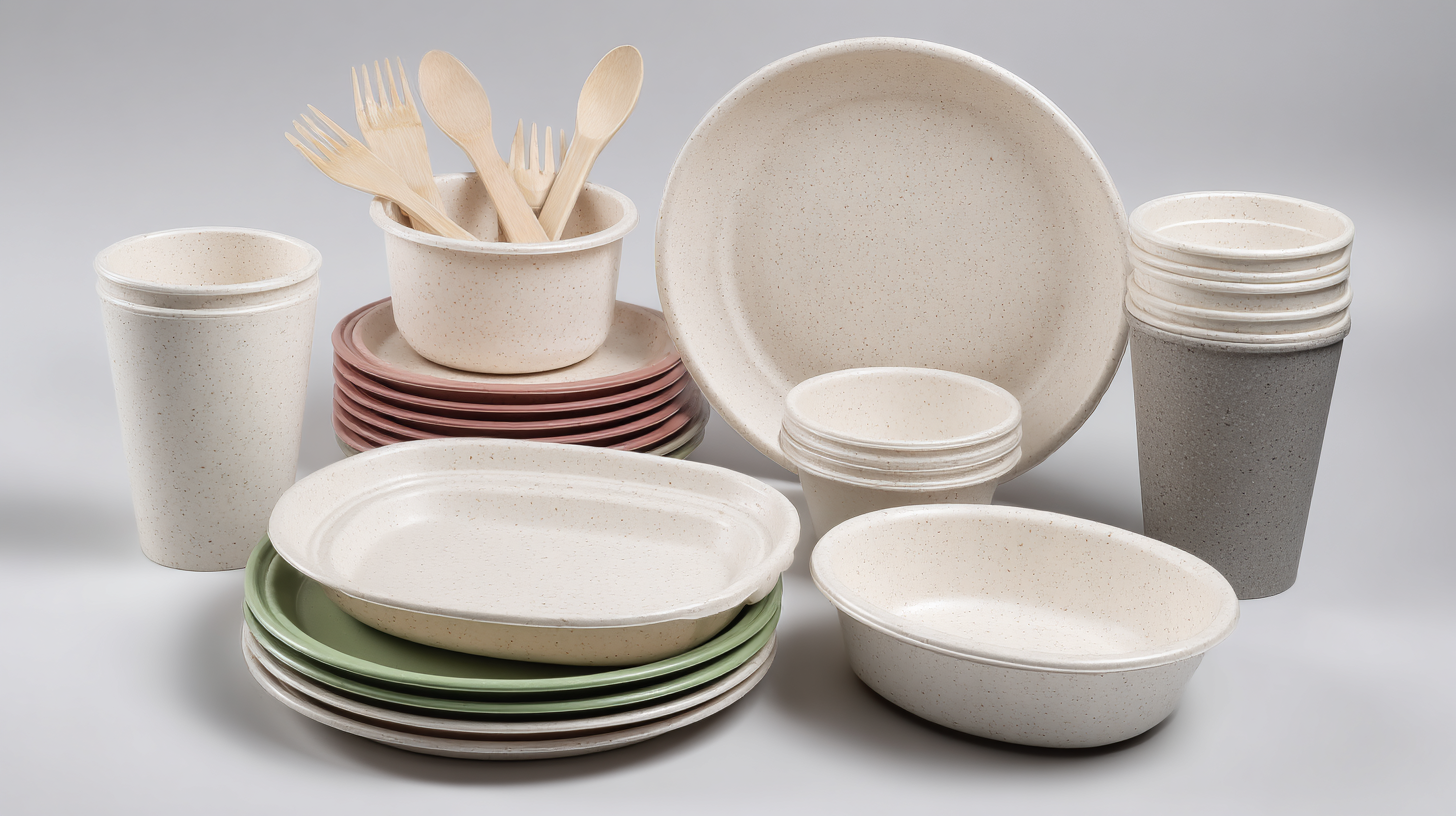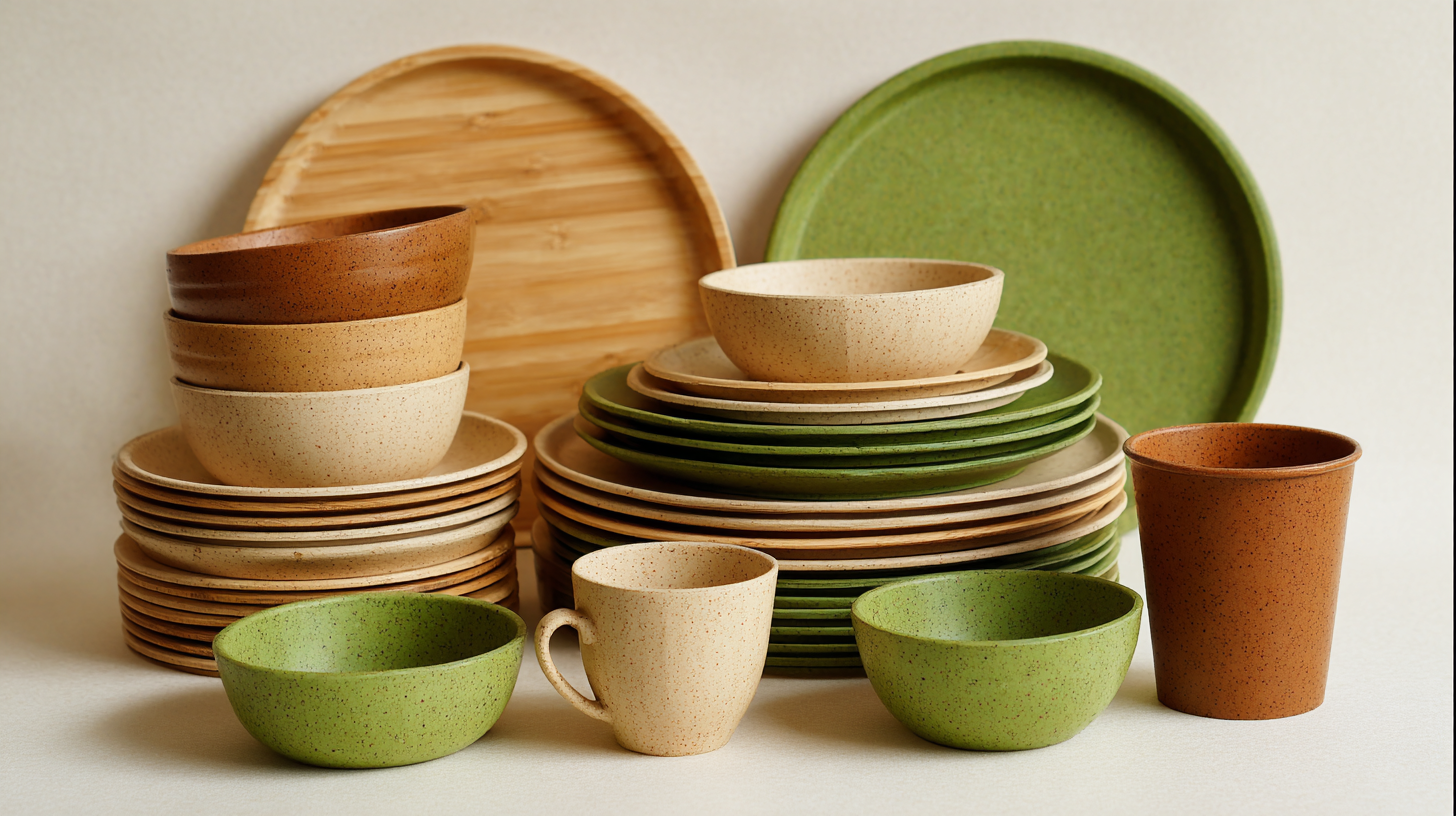In recent years, the global shift towards sustainability has spurred innovation across various industries, and one notable player in this movement is China's premier plant-based tableware. As consumers become increasingly aware of the environmental impact of traditional plastic products, the demand for eco-friendly alternatives is skyrocketing.
 Plant-based tableware emerges as a remarkable solution, combining quality manufacturing with sustainable practices. This blog will explore the myriad ways in which China's contributions to plant-based tableware are reshaping not only the dining experience but also the broader implications for environmental conservation. By examining real-world examples and innovations in this sector, we aim to highlight how these developments are setting new standards for quality and sustainability while making a significant global impact.
Plant-based tableware emerges as a remarkable solution, combining quality manufacturing with sustainable practices. This blog will explore the myriad ways in which China's contributions to plant-based tableware are reshaping not only the dining experience but also the broader implications for environmental conservation. By examining real-world examples and innovations in this sector, we aim to highlight how these developments are setting new standards for quality and sustainability while making a significant global impact.
The rise of plant-based tableware marks a significant shift in consumer preferences towards sustainable and eco-friendly options.
China, as a global manufacturing powerhouse, has embraced this trend by innovating new materials derived from renewable resources.
These products not only serve as an alternative to traditional plastic but also significantly reduce environmental impact, appealing to a growing demographic of environmentally-conscious consumers.
 Chinese companies have spearheaded research and development in plant-based materials, utilizing ingredients such as bamboo, sugarcane, and cornstarch to produce tableware that is both durable and biodegradable.
These innovations are not only revolutionizing the tableware market but also positioning China as a leader in the global effort to combat plastic waste.
With enhanced manufacturing techniques and a commitment to quality, Chinese plant-based tableware is setting new standards that resonate with eco-minded customers and businesses alike.
Chinese companies have spearheaded research and development in plant-based materials, utilizing ingredients such as bamboo, sugarcane, and cornstarch to produce tableware that is both durable and biodegradable.
These innovations are not only revolutionizing the tableware market but also positioning China as a leader in the global effort to combat plastic waste.
With enhanced manufacturing techniques and a commitment to quality, Chinese plant-based tableware is setting new standards that resonate with eco-minded customers and businesses alike.
The rise of plant-based tableware from China marks a significant shift in the manufacturing landscape, prioritizing both quality and sustainability. By utilizing renewable materials, such as cornstarch and bamboo fiber, manufacturers not only produce durable and aesthetically pleasing products but also contribute to reducing plastic waste. This innovative approach aligns with a growing global emphasis on eco-friendliness, allowing consumers to enjoy high-quality dining experiences while making environmentally conscious choices.
Sustainable manufacturing practices go beyond material selection; they encompass the entire production process, from energy sourcing to waste management. Chinese manufacturers are increasingly adopting green technologies and eco-efficient practices that minimize their carbon footprint. This commitment to sustainability resonates with a wide audience, encouraging them to consider the environmental impact of their purchases. The integration of eco-friendly methods into the creation of plant-based tableware ensures that these products not only meet consumer demands for quality but also support a healthier planet for future generations.
As the global demand for sustainable products continues to rise, China's role in the market for biodegradable goods has become increasingly significant. With heightened awareness around environmental issues, consumers are actively seeking alternatives to traditional plastics. This shift in consumer behavior has led to a surge in interest in plant-based products, specifically in the tableware sector. Chinese manufacturers are uniquely positioned to meet this demand, thanks to advancements in production technology and an abundant supply of raw materials.
China’s premier plant-based tableware not only addresses the need for eco-friendly options but also emphasizes quality manufacturing. These products are designed to be both functional and aesthetically pleasing, appealing to a wide spectrum of consumers—from environmentally conscious families to high-end restaurants seeking to enhance their green credentials. The meticulous craftsmanship involved in creating these items ensures that they do not compromise on durability or performance, making them a viable alternative in the growing global marketplace for biodegradable products. Through innovation and dedication to quality, China is poised to lead the way in sustainable manufacturing practices, significantly impacting the future of disposable tableware.

The rising trend of sustainability has significantly shifted consumer preferences, leading to a comparative analysis of plant-based versus traditional tableware. Plant-based tableware, often manufactured from materials like wheat straw, sugarcane, or corn, offers a biodegradable alternative to conventional plastic and styrofoam products. These innovative options are not only environmentally friendly but also designed to meet the rigorous safety standards required for food contact, making them an appealing choice for eco-conscious consumers.
In contrast, traditional tableware, while widely used and often more durable, poses a long-term environmental concern due to its reliance on petroleum-based plastics. The production and disposal of these materials contribute to significant ecological footprints, raising awareness among consumers about their choices. As more individuals and businesses aim to reduce waste and embrace sustainability, the plant-based alternatives stand out as a practical and responsible solution. Ultimately, this shift signifies a broader movement towards quality manufacturing that prioritizes the planet alongside functionality and design.
As the world shifts towards sustainability, China's premier plant-based tableware is at the forefront of environmentally-friendly dining trends.
According to a recent report by Market Research Future, the global plant-based tableware market is projected to grow at a CAGR of 8.5% from 2021 to 2028, reflecting a rising consumer preference for eco-friendly dining options.
China's innovative manufacturing techniques not only ensure quality but also contribute to reducing plastic waste, making it an essential player in the global eco-conscious movement.
To embrace this shift towards sustainable dining, consider these tips: first, always opt for tableware made from renewable resources such as
bamboo or sugarcane, which decompose much faster than traditional plastics.
Second, look for certifications that verify the eco-friendliness of the products, such as compostability labels, ensuring that your choices are creating a positive environmental impact.
Lastly, be mindful of the entire lifecycle of your dining products and choose brands that prioritize both quality and sustainability.
As more businesses and consumers recognize the importance of reducing their carbon footprints, the plant-based tableware market not only enhances the dining experience but also fosters a culture of sustainability.
This trend aligns perfectly with the global movement toward greener practices, where China's contributions will play a pivotal role in shaping the future of how we dine.
